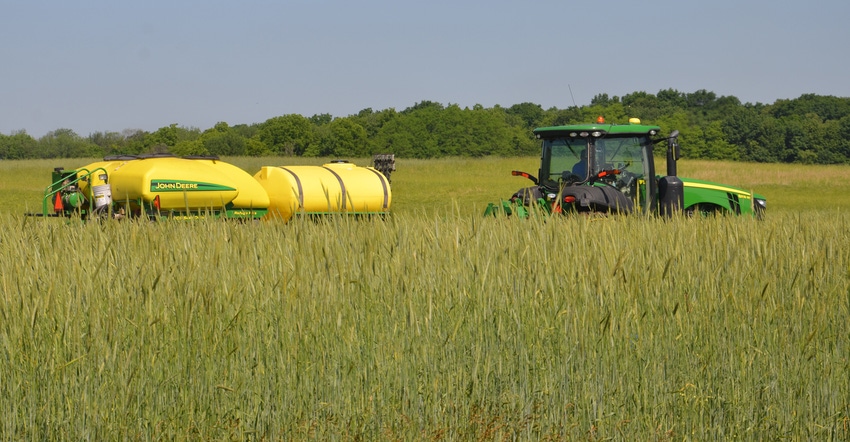April 23, 2020

We, as farmers, didn’t do what we’ve done over the past 50 years in shifting away from crop rotations, creating more soil compaction and adding to nutrient runoff maliciously. We didn’t understand the future implications of our actions.
However, there’s a responsibility to share experiences with those who will listen and consider a change if the physical evidence becomes compelling. I’ve thought about this for some time and finally recognize what is happening at the broader level of modern production ag. We’re responsible for a large portion of the current-day pollution of our streams and estuaries. That is an allegation we can’t successfully avoid.
The common answer given is, “We don’t have the economic wherewithal to farm the way prescribed.” That’s an excuse, because we also don’t do it when we have “extra” in the bank. A few did after 2012 and 2013, but not many.
What works with me is, “I don’t know how.” That can be fixed if minds stay open. There are great articles and many good videos that give the road map to doing it economically and agronomically. It’s possible, without either money or knowledge being limiting factors.
Unintended consequences
I’m OK to risk saying these things if it means we can avoid a federal lawsuit that does to farmers what I directly saw happen to the forest products industry with the spotted owl in the early ’90s as I managed that issue. It wasn’t about the owl. It was about forests being harvested above the sustainable rate of growth for too long. That was fact. However, there was no law that prohibited it. Yet there was an endangered species law that worked well for the opposition. They decimated businesses in Washington, Oregon and northern California with a federal lawsuit that gave a single judge the right to decide.
Those people lived to see that individual judge decide their future. Farmers don’t think it will happen to them. I believe it will. As with the spotted owl, it’s just a matter of time.
We’ve seen skirmishes in Iowa and Ohio already. If the opposition goes after the Gulf of Mexico’s water issue, it’s the entire Midwest. I can’t imagine the pain that action will inflict, as I know with relative certainty that the judge will get it wrong. By wrong, I mean that present farm practices will be immediately and sharply curtailed. This will cause serious difficulties for many farms.
I’d rather farmers learn the facts of soil degradation and the impact on water quality now, rather than wait and be forced into a practice-based remediation plan from a judge later. If you fix soil health, you fix much of the water problem by default.
Though this has little to do with the continuous loss of carbon limiting our farms’ future productivity. There are three legs to the stool for solid crop production: genetics, technology of placement, and timing of production inputs and soil. We’re doing well in the first two. The last one, soil, lags far behind.
I fear even the land-grant folks don’t clearly understand what’s at risk. There are many people much smarter than me, but experience and thinking about the future of the farming business have brought me to a new place in these “golden” years, as I consider where we have come from throughout my life.
Moseley is a farmer from Clark’s Hill, Ind. He began serving as ag adviser to the administrator of U.S. EPA in 1989. He was USDA undersecretary for natural resources and environment from 1990 to 1992, and USDA deputy secretary from 2001 to 2005. Read his related response to Indiana Prairie Farmer articles about soil compaction.
You May Also Like




